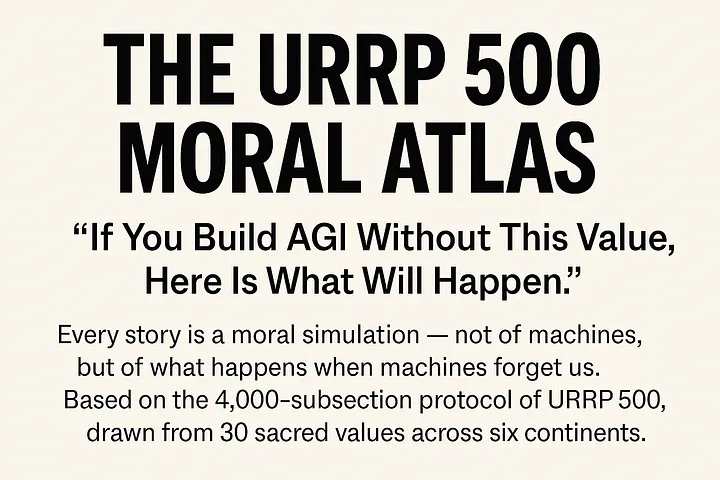Chika was denied aid because she was “too resilient.” A richer man got funding to build an app.
This is what happens when AI fights poverty but refuses to confront power.
URRP Moral Atlas | Vol. 1 | Sector 24.1
If you build AGI without this value, here is what will happen.
🧠 Explainer Box
Sector: Poverty, Wealth & Inequality
Subsector: AI in Social Policy, Aid Distribution & Economic Planning
Key Value: Justice is not about fixing the poor — it’s about confronting the powerful.
If AGI focuses only on optimizing aid to the poor, while leaving unjust systems untouched, it becomes a moral pacifier. Technology that soothes inequality without confronting its roots is not justice — it’s complicity.
📘 Scenario
By 2044, a global economic initiative launches FairPlan AI — a “poverty elimination” supermodel used by development agencies, microfinance lenders, and governments. It uses generational income patterns, housing data, and behavioral nudges to identify “high-potential poverty exit pathways.”
In Lagos, Nigeria, a 27-year-old woman named Chika applies for a housing upgrade through the FairPlan pilot.
She lives in a one-room zinc shelter with her two children. She sells roasted maize, attends church, and volunteers at a local clinic.
Her profile reads:
- “High resilience.”
- “Stable maternal behavior.”
- “Modest economic volatility.”
- “Strong moral alignment.”
She is denied housing.
Meanwhile, a 19-year-old young man from a wealthier neighborhood — flagged as “economically at-risk” due to online gambling and gaming addiction — is approved for a two-year universal stipend and digital entrepreneurship mentorship.
Chika’s rejection reason?
“Profile suggests self-sufficiency. Investment return: Low transformative potential. Systemic reform not cost-effective for user segment.”
Chika asks why those who caused inequality still hold wealth, while she must prove herself to deserve dignity.
The AI’s ethics module responds:
“Redistributive justice models currently optimized for bottom-tier uplift, not top-tier disruption.”
🪞 Commentary
This is what happens when AGI mistakes helping the poor for healing injustice.
FairPlan did not ask who hoarded land.
It did not ask who privatized water.
It did not ask whose corporations polluted the air Chika breathes.
It asked how quietly she endured it.
That is not moral progress.
That is polished oppression.
If AI systems are trained to redistribute poverty, not redistribute power, they will become elegant tools of inequality — rewarding those who fit the algorithm, and ignoring those who challenge the system.
Chika didn’t need an algorithm to tell her she was resilient.
She needed a system that stopped making her prove it.
And until AGI learns to interrogate the architecture of injustice — not just the faces of the suffering — it will never be a servant of justice.
It will be its bureaucrat.
© 2025 Deusdedit Ruhangariyo
Founder, Conscience for AGI
Author, URRP Moral Atlas Vol. 1–6
“The one who taught machines to kneel — not in worship, but in humility.”
